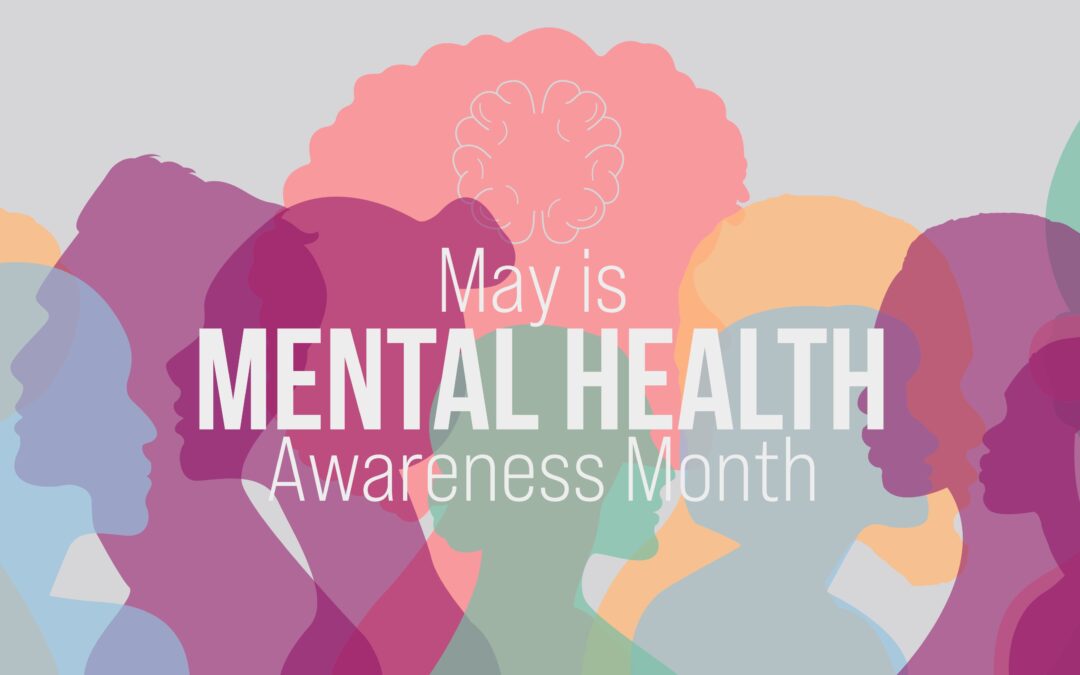May is Mental Health Awareness Month, a time dedicated to raising awareness about the importance of mental health and reducing stigma surrounding mental illness. For individuals in recovery from addiction to drugs and alcohol, mental health plays a crucial role in the journey towards healing and sobriety. In this blog post, we’ll explore the intersection of mental health, recovery, and addiction, offering insights into how mental well-being can affect the recovery process. Additionally, we’ll provide practical tips for maintaining mental health and well-being during the recovery journey.
The Impact of Mental Health on Recovery and Addiction:
Mental health and addiction are deeply interconnected, with one often influencing the other in a complex interplay of factors. For individuals in recovery from addiction to drugs and alcohol, addressing underlying mental health issues is essential for achieving lasting sobriety and overall well-being.
- Dual Diagnosis: Many individuals struggling with addiction also experience co-occurring mental health disorders, a phenomenon known as dual diagnosis or comorbidity. Common co-occurring disorders include depression, anxiety, post-traumatic stress disorder (PTSD), bipolar disorder, and personality disorders. These mental health conditions can exacerbate addiction and complicate the recovery process if left untreated.
- Self-Medication and Coping Mechanisms: Individuals with untreated mental health disorders may turn to drugs or alcohol as a form of self-medication to alleviate symptoms, numb painful emotions, or cope with overwhelming stress. While substance use may provide temporary relief, it ultimately perpetuates the cycle of addiction and exacerbates underlying mental health issues.
- Triggers and Relapse Risk: Mental health challenges can serve as triggers for substance use and increase the risk of relapse among individuals in recovery. Stress, anxiety, depression, trauma, and other emotional triggers can elicit cravings and urges to use drugs or alcohol as a means of coping, making it essential to address these underlying issues in the recovery process.
- Treatment Challenges: Treating co-occurring mental health and substance use disorders requires a comprehensive and integrated approach to care. Traditional addiction treatment programs may not adequately address underlying mental health issues, leading to suboptimal outcomes and increased risk of relapse. Integrated treatment models that address both addiction and mental health simultaneously offer the best chance for successful recovery.
Tips for Maintaining Mental Well-Being in Recovery:
Maintaining mental well-being is essential for individuals in recovery from addiction to drugs and alcohol. By prioritizing self-care, seeking support, and implementing healthy coping strategies, individuals can nurture their mental health and enhance their overall quality of life.
- Attend Therapy and Counseling: Participating in therapy and counseling can provide valuable support and guidance for individuals in recovery. Cognitive-behavioral therapy (CBT), dialectical behavior therapy (DBT), and other evidence-based approaches can help individuals address underlying issues, learn coping skills, and develop healthier thought patterns and behaviors.
- Practice Mindfulness and Meditation: Incorporating mindfulness and meditation practices into daily life can promote relaxation, stress reduction, and emotional regulation. Mindfulness techniques such as deep breathing, body scanning, and guided meditation can help individuals cultivate present-moment awareness and cope more effectively with cravings and triggers.
- Engage in Regular Exercise: Regular exercise is beneficial for both physical and mental health, releasing endorphins and reducing stress, anxiety, and depression. Find activities you enjoy, such as walking, jogging, yoga, or dancing, and make time for physical activity as part of your daily routine.
- Foster Supportive Relationships: Build a strong support network of friends, family members, peers, and professionals who understand your journey and can offer encouragement, empathy, and accountability. Surround yourself with positive influences and cultivate meaningful connections that nurture your well-being.
- Practice Self-Care: Prioritize self-care by engaging in activities that promote relaxation, enjoyment, and personal fulfillment. Whether it’s reading a book, taking a hot bath, spending time in nature, or pursuing a hobby, make time for activities that recharge your batteries and nourish your soul.
- Set Boundaries and Manage Stress: Set boundaries to protect your physical, emotional, and mental well-being, and learn to say no to activities or obligations that feel overwhelming or draining. Practice stress management techniques such as time management, problem-solving, and assertive communication to reduce stress and increase resilience.
Conclusion:
As we observe Mental Health Month in May, let us recognize the critical role that mental well-being plays in the journey of recovery from addiction to drugs and alcohol. By addressing underlying mental health issues, implementing healthy coping strategies, and prioritizing self-care, individuals can enhance their overall quality of life and increase their chances of long-term sobriety and success in recovery. Remember that you are not alone, and support is available to help you navigate the challenges of recovery and nurture your mental health and well-being. Together, let’s break the stigma surrounding mental illness, promote awareness, and support each other on the path to healing and wholeness.
Talk to Someone Who’s Been There. Talk to Someone Who Can Help. Scottsdale Recovery Center holds the highest accreditation (Joint Commission) and is Arizona’s premier rehab facility since 2009. Call 602-346-9142.

